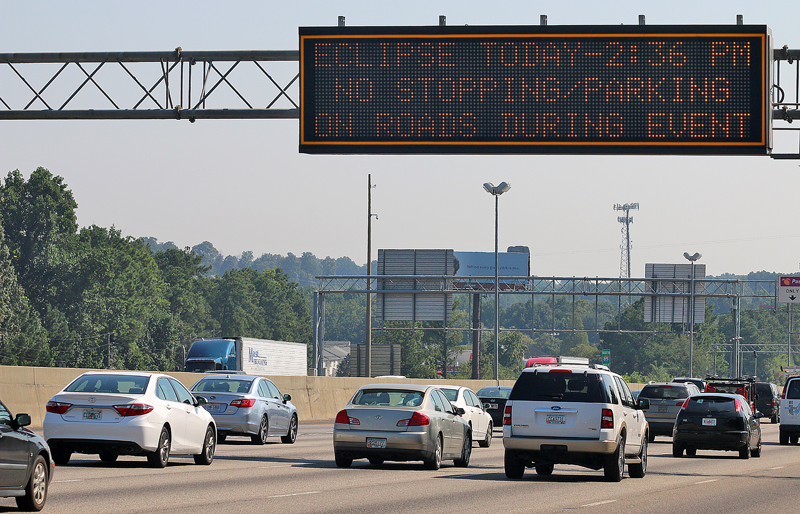If you are driving within the state of Georgia, know that a strict new law pertaining to the use of a mobile telephone in conduction with the operation of a motor vehicle is now in effect as of Sunday, July 1, 2018.
Driving in Georgia? Do Not Touch That Mobile Telephone. What You Need to Know
Vehicle traffic crashes, fatalities and bodily injury have increased significantly in the state of Georgia in recent years. The vast majority of these increases have been in rear-end crashes, single-car crashes and crashes by drivers aged between 15 years old and 25 years old, who comprise ten percent of all drivers involved in fatal crashes in which they were reported as distracted at the time of the crash. State and local law enforcement officials have stated that these incidents are a clear indication of inattention by drivers.
House Bill 673 — which is also known as the Hands Free Law — was passed by the Georgia General Assembly and signed into law by Nathan Deal, who is the current governor of the state of Georgia.
If you are driving anywhere within the state of Georgia, you:
- Cannot have a mobile telephone in your hand — or use any part of your body — to support your mobile telephone.
- Can only use your mobile telephone to place or receive calls by using a speakerphone, earpiece, wireless headphone, a mobile telephone which is connected to vehicle, or an electronic watch — and navigation devices with global positioning system software are allowed.
- Can wear a headset or earpiece; but it can only be used for the purpose of communication and not for listening to music or any other form of entertainment.
- May not send or read any text-based communication unless you are using voice-based communication which automatically converts the message to a written text; or is being used for navigation or global positioning system
- May not write, send or read any text messages, e-mail messages, social media or internet data content
- May not watch a video unless it is for navigation.
- May not record a video — but one exception is that continuously running dashboard cameras which record video are permitted
- May not communicate with someone via visual technological means — such as FaceTime or Skype
- May use a streaming software application program for music which does not include video — provided that you activate and program it when your vehicle is parked, as you cannot touch your mobile telephone to do anything to your music software application program while your vehicle is in motion or on the road.
- Are not required to purchase a hands-free accessory for a mobile telephone — although that would be safer than keeping a mobile telephone on a console or the front seat
Exceptions to the Hands Free Law
Exceptions to the Hands Free Law include:
- Reporting a traffic crash, medical emergency, fire, criminal activity or hazardous road conditions.
- An employee or contractor of an utility service provider acting within the scope of their employment while responding to an utility emergency.
- A first responder — such as law enforcement, fire, emergency medical services — during the performance of their official duties.
- When in a vehicle which is lawfully parked — this DOES NOT include vehicles stopped for traffic signals and stop signs while on the public roadway.
Information For Operators of Commercial Motor Vehicles
Operators of commercial motor vehicles can only use one button to begin or end a call on their mobile telephones; and they cannot reach for a wireless telecommunications device or stand-alone electronic device in that it no longer requires the driver to be a seated position or properly restrained by a safety belt.
Enforcement of the Hands Free Law
The Georgia Department of Public Safety and local law enforcement agencies have the option to issue warnings for violations as part of the effort to educate and to help motorists adapt to the new Hands Free Law; and citations will now be issued for any violation of the law — including those where the violation involves a traffic crash — as no grace period provision is provided.
Fines and penalties are as follows:
- First conviction: $50.00 and one point on a license
- Second conviction: $100.00 and two points on a license
- Third and subsequent convictions: $150.00 and three points on a license
Key Facts and Statistics
Distracted drivers were involved in motor vehicle crashes in 2014 in which 3,170 people were killed and 431,000 were injured.
Motorists between 20 and 29 years of age were 27 percent of the drivers who were distracted in fatal crashes; and 38 percent of drivers in this age group were using mobile telephones in fatal crashes.
Since 2010, approximately 660,000 drivers are using portable electronic devices while driving during daylight hours.
Greater than 176 billion text and multimedia messages were sent each month as of December of 2015.
Summary
Hands-free driving laws are already in effect in 15 other states in the United States; and traffic fatalities have decreased by 16 percent as a result within two years after the law was passed. Additionally, traffic fatalities were reduced even further in subsequent years.
Safety while driving — whether you are renting a vehicle or driving your own car — is paramount, in my opinion; and I have noticed countless incidents of unsafe driving primarily because motorists were using their portable electronic devices and not paying attention to the road while they are driving.
I personally believe that every state in the United States should have a similar law.
Related articles which I wrote pertaining to distracted driving include:
- WARNING: Graphic Videos of Why You Should Not Text While Driving
- Should People Who Send Text Messages to Drivers Be Liable In Case of an Accident?
Photograph ©2017 by Brian Cohen.

